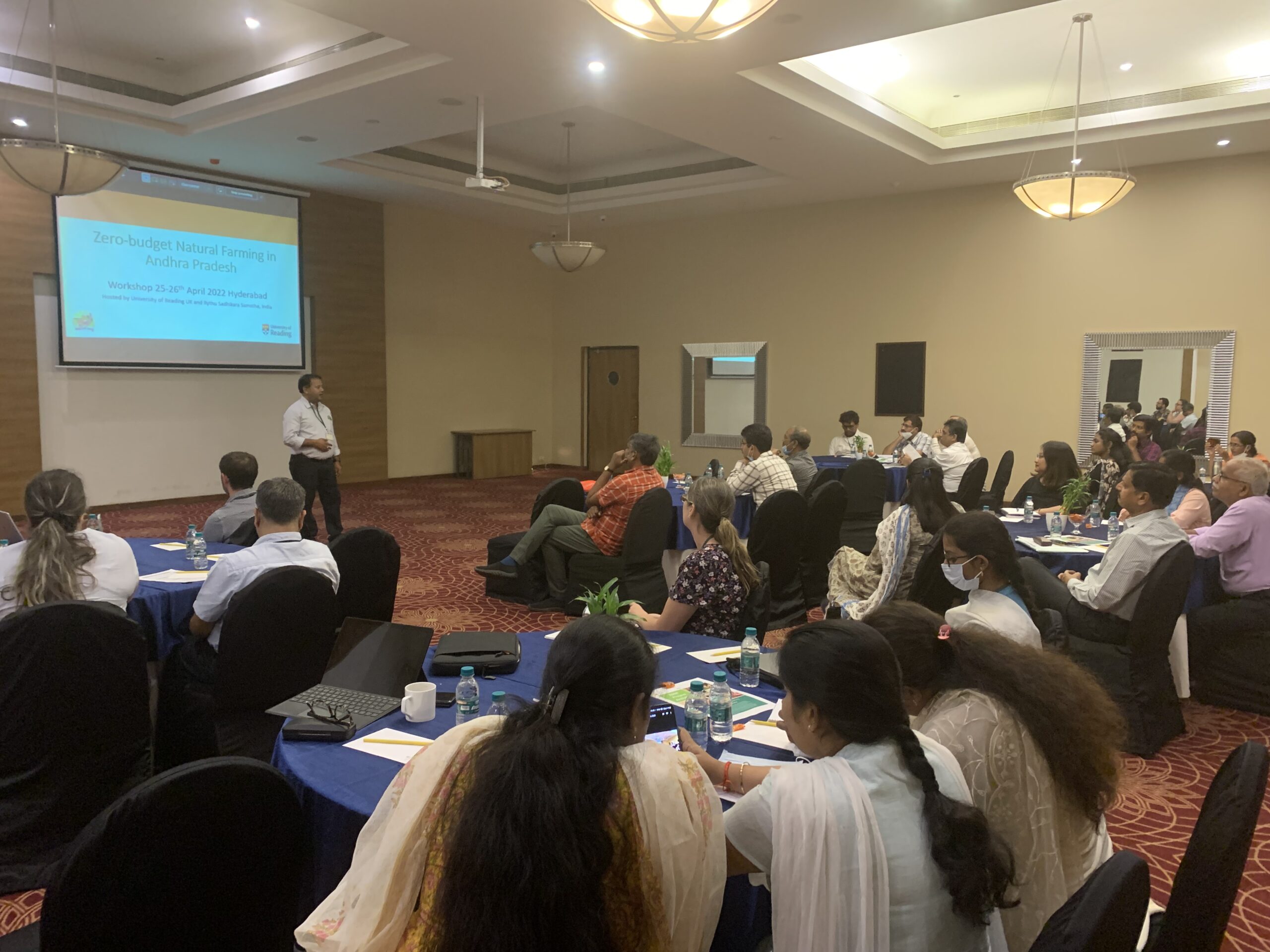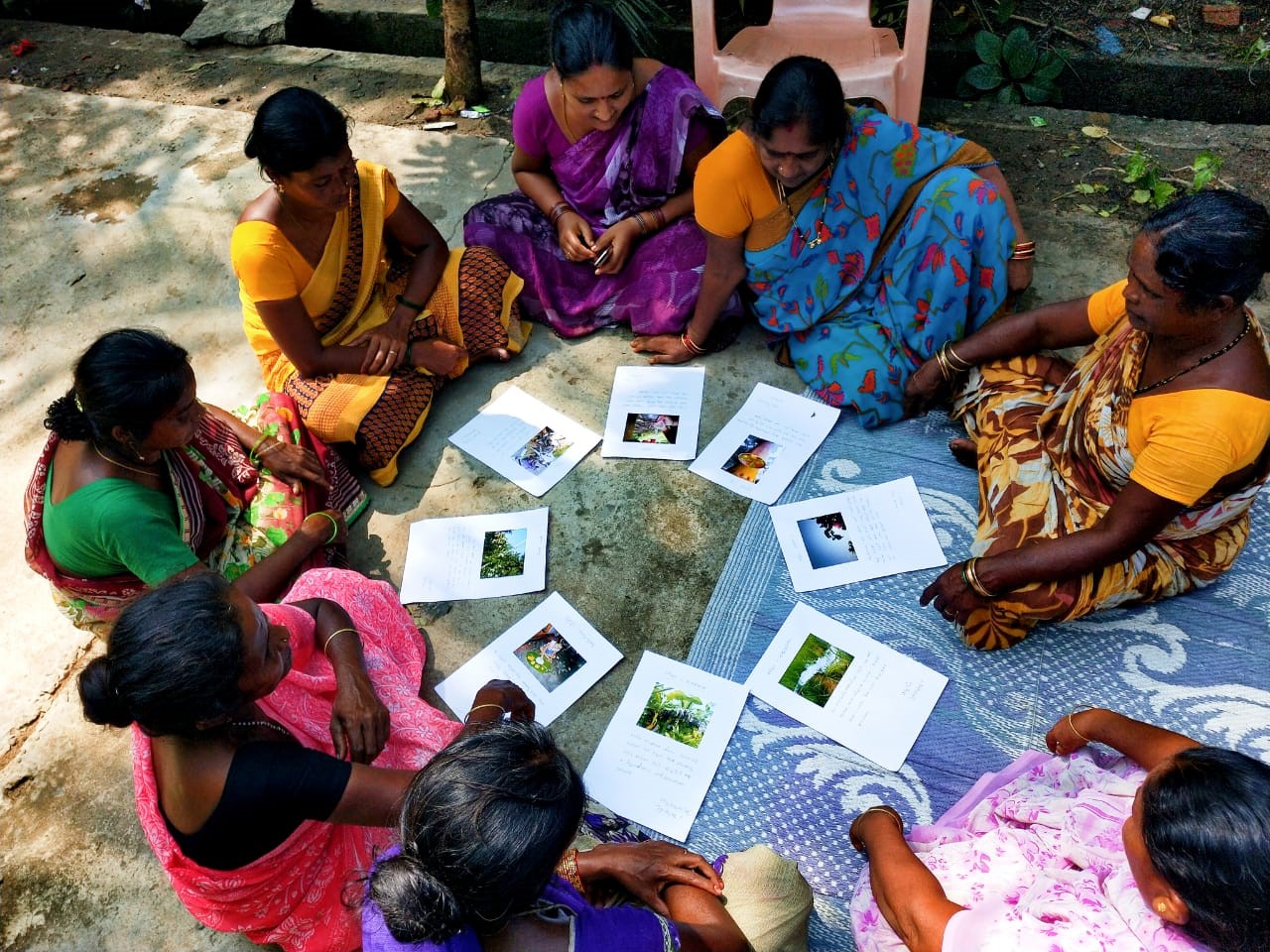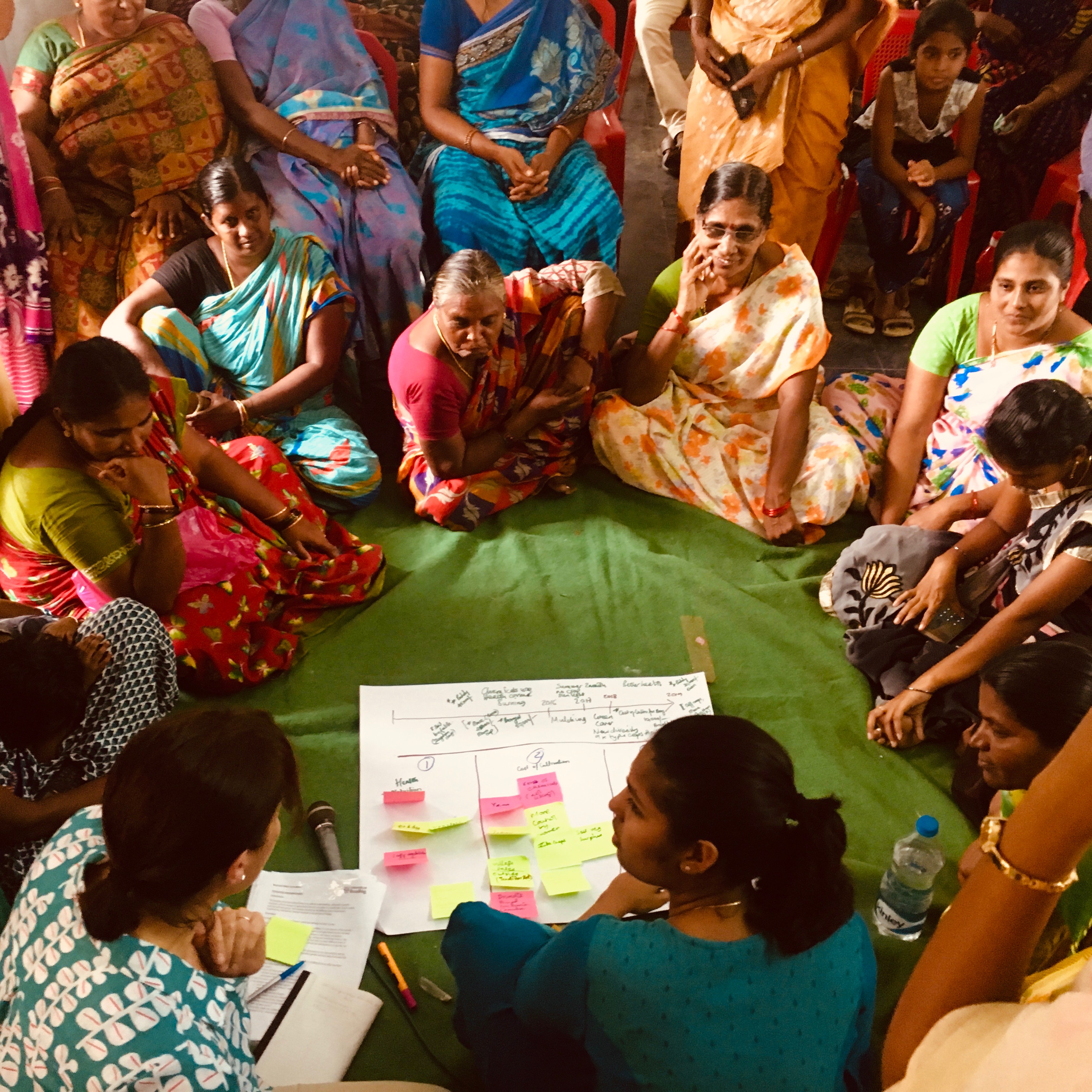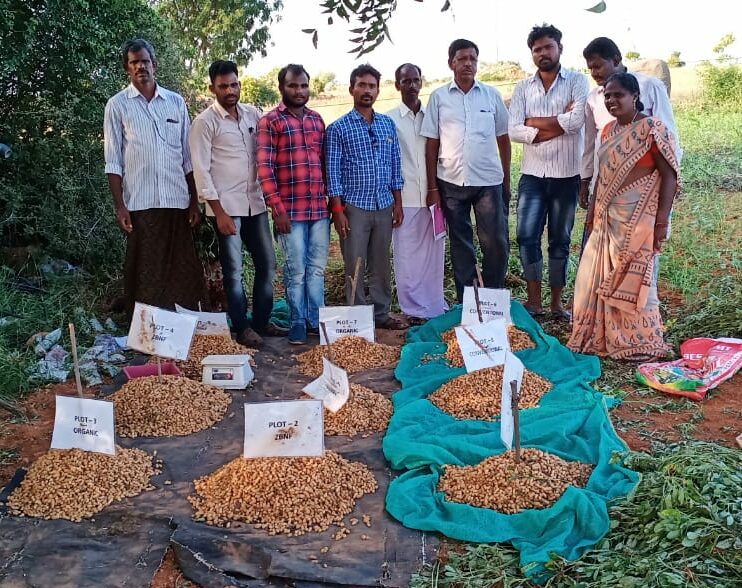DEVELOPING AN EVIDENCE BASE TO SUPPORT ZBNF’S WIDER APPLICATION
BACKGROUND
An interdisciplinary team of soil and social scientists from the University of Reading and Rythu Sahikara Samstha (RySS) are working to develop an evidence base to understand the strengths and weaknesses of the ZBNF approach, to what extent that success has come from context-specific conditions, and whether there are principles that could be useful in other geographic and cultural areas. Our research has four broad aims:
- Understanding whether ZBNF works, how and why it is adapted to suit different contexts, leading to knowledge that can accelerate scaling up and out.
- Demonstrating the dynamics and outcomes of ZBNF of a) the innovation system b) the socio-economic outcomes and c) the environmental outcomes.
- Understanding how and why the extension process promoting ZBNF works (and hence leads to adoption) leading to knowledge that can inform the scaling up of the approach.
- Predicting and adjusting to possible changes in performance as ZBNF is adopted for longer periods of time and at larger spatial scales.
A number of research activities have been underway since the project was established in 2019 you can download a summary here.
 WORKSHOPS
WORKSHOPS
Workshops have been held in April 2021 (online) and 2022 (Hyderabad) with respected Indian academics and practitioners in the fields of both soil and social science. During the first of which, participants were able to share an overview of current relevant research, and develop principles for a framework of biophysical evaluation and understanding communication processes at larger scale. The basis of which will form a collaborative paper. The purpose of the second workshop was to showcase the research findings from Phase I of our project and discuss the interdisciplinary research design for Phase II of the project. The proceedings of the second workshop can be found here.
PARTICIPATORY PHOTOGARPHY
To analyse farmer decision making and innovations resulting from ZBNF adoption. The research developed an innovative methodology using photography with the women in Self-Help Groups in the 3 locations to reveal their perspectives and rationales for adopting full or partial ZBNF, and analyse processes of communication and innovation. These data were collected from 6 villages with the support of 3 researchers from RySS to generate a large data set of photo responses taken by the women farmers themselves and annotated with their associated narratives. This data set is now being analysed and prepared for journal submission. An additional paper on the methodology has been published:
 MAPPING OF THE GENDERED INNOVATION SYSTEMS SUPPORTED BY ZBNF
MAPPING OF THE GENDERED INNOVATION SYSTEMS SUPPORTED BY ZBNF
Aims to understand the knowledge exchange processes. The data collection for this task was completed in 2019 and analysis shows distinct innovation systems and process of knowledge exchange across locations. A paper is in preparation capturing the key findings, keep an eye on our news page for further developments.
ENVIRONMENTAL EVALUATION OF THE ZBNF SYSTEM
The aim is to provide scientific evidence underpinning the environmental benefits of the ZBNF system under five broad themes for research: nutrient budgeting; carbon dynamics; resilience to climatic stress; soil microbial ecology; quantifying water use. Experiments have been run for 3 seasons, in 6 agri-climatic zones of Andhra Pradesh. The purpose is to evaluate the performance of ZBNF contrasted with conventional chemical input and organic amendment systems. Day to day management is undertaken by the RySS Natural Farming Fellows (NFFs) with oversight from the Research Coordinators (RCs), RySS, and UoR team. Initial results indicate that there is no yield penalty associated with the first year of conversion to a ZBNF system.
Impact of Zero Budget Natural Farming on Crop Yields in Andhra Pradesh, SE India
 ASSESSING THE INFLUENCE OF INDIVIDUAL COMPONENTS OF THE ZBNF SYSTEM
ASSESSING THE INFLUENCE OF INDIVIDUAL COMPONENTS OF THE ZBNF SYSTEM
Examining the effects of different ZBNF inputs (Bijamrita, Solid Jiwamrita, Liquid Jiwamrita, and Achhadana) on crop yield and the relationship between soil physical, chemical and biological parameters. These experiments are managed by the RySS Research Coordinators (RCs) in consultation with RySS and the UoR team. Analysis of the first seasons data indicates that crop performance is improved if all components are used but no clear mechanism for what is driving this has emerged as yet. Keep an eye on our news page for new developments and publications.
UNDERSTANDING UPTAKE OF ZBNF INNOVATION – 365 GREEN COVER
Focusing on the low rainfall district of Anantapur, we are surveying farmers who have adopted ‘365 green cover’ (live mulching/ green cover for 365 days of the year) as part of their ZBNF practise. The survey aims to establish the General household profile (demography, land and location, livelihoods) and farming system (cropping, level of adoption of 365 innovation, food security /dietary diversity) of ZBNF farmers in Anantapur.
